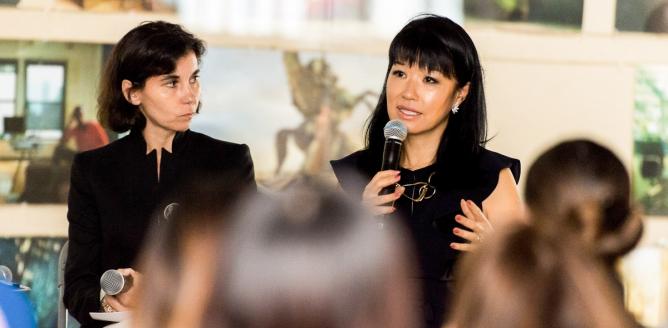This is a slightly belated communiqué from me from the Cannes Lions International Festival of Creativity - the annual gathering for the global creative, advertising and media industries to connect, share and celebrate the winners of the Cannes Lions’s 24 awards (drawn from over 400,000 submissions) which are judged and presented at the Festival.
I served as a judge for this year's Glass Lions which recognise advertising campaigns which set out to positively impact ingrained gender inequality, imbalance or injustice. This year’s Glass Lion went to tea brand Brooke Bond, owned by Unilever, who launched India’s first transgender pop band.
During the Festival, Unilever announced a new global strategy to “#unstereotype” and eradicate outdated portrayals in its advertising going forward. Unilever’s chief marketing officer Keith Weed, shared internal Unilever research which analysed 1,000 ads from different countries and found 50% contained stereotypical portrayals of women. Just 1% conveyed women as funny, 2% showed them as intelligent and 3% showed them as leaders.
The research also examined Unilever's own advertising output, split into "progressive" and "normative", and found that the more progressive ads had 12% greater impact, in terms of consumers actively enjoying and feeling involved with the ads. 90% of women surveyed felt women are presented as sex symbols and almost a third said ads depict women as perceived by a man.
Unilever’s three-pronged strategy will include giving women an “authentic and three-dimensional” personality in ads. It will also include showing roles that represent the “aspirations and broader achievements” of women, and depicting beauty in more female terms as “enjoyable, non-critical and in perspective”.
This is a massive deal because Unilever which owns hundreds of household brands like Lux, Dove, Flora and Knorr, spends £6bn a year on ads which makes it the second-biggest advertiser globally.
Some commentators are carping at Unilever’s announcement which comes on the heels of London Mayor Sadiq Khan’s ban on body-shaming ads on the London Underground for being overly puritanical. Stephen Bayley writing in this weekend’s Daily Telegraph expressed nostalgia for adverts showing women unable to resist the lure of chocolate or going weak at the knees at the sight of a man.
At the end of the day though, whatever your point of view, as Madeline Di Nonno, chief executive of the Geena Davis Institute on Gender in Media and Judge of this year’s Glass Lions jury put it, “Media is the only business industry when we can literally paint a picture of the world the way we want it to be, and advertising as a storytelling medium is as important as the programming it is attached to. One 30-second spot can make a lifetime impression.”
It will be fascinating to see how other brands and the rest of the advertising industry respond. And whether other cities besides London move to ban sexist billboards in certain public areas.





















